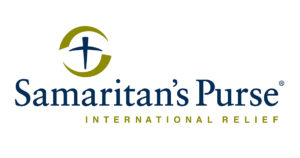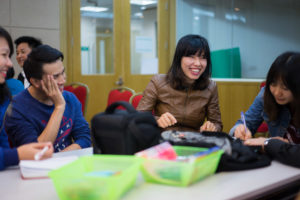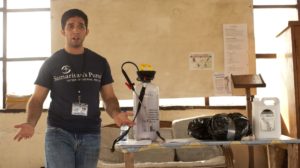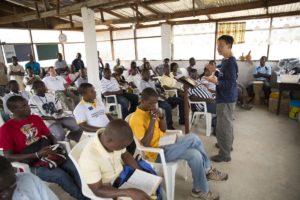
Meet our member
Who we are
Samaritan’s Purse (SP) is an international relief and development agency that has been providing spiritual and physical aid to hurting people around the world. Established in 1970, SP is a nondenominational evangelical Christian organization and has been a LINGOs member since 2012.
What learning means to us
Learning allows our staff to develop but it is also a critical component of our work as we educate and upskill our beneficiaries. At SP, we believe there is a strong connection between effective training practices and project outcomes. When we joined LINGOs, we saw that the collective resources surpassed our ability to tackle learning challenges alone. The learning tools and technical support from LINGOs has pushed us further and faster than we would have otherwise been able to go. Being part of the LINGOs community has allowed us to have member-driven discussions and collectively tackle challenges with those who understand our circumstances.
How we learn at Samaritan’s Purse
Two examples of learning initiatives that have had great impact on our organization have been a course we developed in-house and a training program that uses online courses provided by LINGOs. ‘Driving Outcomes Through Effective Training’ (DOTET) is a face-to-face ‘working training’ that helps staff at all levels understand how to build and deliver impactful training. Our Leadership Development Pathway is a training program that prepares senior leaders of the future through a series of LINGOs-provided online courses, virtual group discussions, and selected readings.
have been a course we developed in-house and a training program that uses online courses provided by LINGOs. ‘Driving Outcomes Through Effective Training’ (DOTET) is a face-to-face ‘working training’ that helps staff at all levels understand how to build and deliver impactful training. Our Leadership Development Pathway is a training program that prepares senior leaders of the future through a series of LINGOs-provided online courses, virtual group discussions, and selected readings.
In the first half of 2017, leadership training made up almost half of our learning as our staff have an intense passion to serve and lead with excellence. Other forms of workplace learning include online courses, regional learning exchanges, online communities of practice, sector-based webinars, and technical resource libraries. The combination of digital resources coupled with interactive training programs has given our staff tools to grow and improve in any area of need.
The difference learning has made
One example of the impact of learning at SP is when our Latin America regional director and senior program officer recognized a deficiency in key success indicators in some regional projects. Each of these programs had a significant beneficiary training and/or behaviour change component but our assessment found a lack of sufficient staff capacity in adult learning and effective training practices. This led to the creation of our DOTET training, which we have successfully deployed in several country offices to help support our project activities.
We encourage program managers to look for changes in project outcomes as possible indicators of whether the training they deliver is successful. For example, do activity outcomes meet or exceed the goal? Are the long-term goals of the beneficiary training, such as reductions in infant mortality or disease, on target? We add the most value when we can show our training has a significant impact on field-based projects.
Cliford, a WASH Program Manager, spoke about the impact of the training. “It really impacted my staff and has helped bring a lot of necessary changes in the WASH training curriculum,” he said. Cliford has also created a WASH Training Manual which he plans to give to every Water User Committee member so they can deliver community training on hygiene and sanitation as well as help sustain SP’s programs.
impacted my staff and has helped bring a lot of necessary changes in the WASH training curriculum,” he said. Cliford has also created a WASH Training Manual which he plans to give to every Water User Committee member so they can deliver community training on hygiene and sanitation as well as help sustain SP’s programs.
Yves, a Maternal Child Health Program Coordinator, also found the training helpful. “Having brilliant thoughts is good, but when you have them in order it’s excellent,” she said. “I considered the training to be a, ‘how to organize your training’ training, because it gave a clear direction, helped us create a training plan and also helped identify the methods and tools to use depending on the target.”
Our future learning plans
As an international NGO, one of our challenges is to ensure important organizational knowledge does not slip through the cracks. With a regular turnover of staff as projects begin and end, we regularly have new staff to train so we recognize the importance of a strategic and accessible system for capturing, interpreting and sharing organizational knowledge.
To help achieve this, we are firstly working closely with internal subject matter experts to build capacity among field staff, as well as build their own capacity as trainers and adult learning professionals. Secondly, we are challenging passionate staff members to engage their teams in relevant professional development through a combination of  online and in-person skills practice sessions. Thirdly, we are learning what it means to be rapid and flexible in a fast-paced, disaster response context. This is a significant aspect of our organizational culture, so it is important for us to respond quickly to the needs of our country offices in developing high-quality, effective, and efficient training content.
online and in-person skills practice sessions. Thirdly, we are learning what it means to be rapid and flexible in a fast-paced, disaster response context. This is a significant aspect of our organizational culture, so it is important for us to respond quickly to the needs of our country offices in developing high-quality, effective, and efficient training content.
Our advice to you
Never give up! Engage your audience as co-creators of learning content. Don’t assume you know their needs. Find the aspects of the job that your people are passionate about, then help them grow in those areas in ways that resonate with them. This will build trust and respect and allow you to approach them about areas where they need to improve.
Also, be sure to communicate frequently about what is available and where staff can access it. Often people know less about where to locate organizational knowledge than you think. Communicate multiple times and through multiple channels; you never know when the learning content will suddenly become relevant to job performance. At SP, we do this through newsletters, field-based Learning Advocates, online community groups and resource libraries, top-down communication, system-wide emails, internal networking, and one-on-one check-ins.

Andrew Berke
Instructional Design Specialist, Samaritan’s Purse
